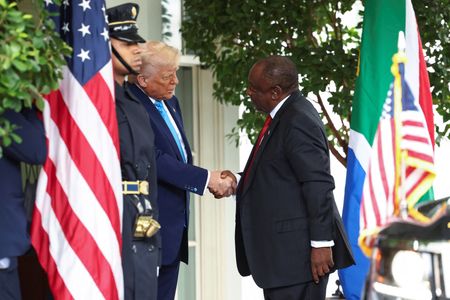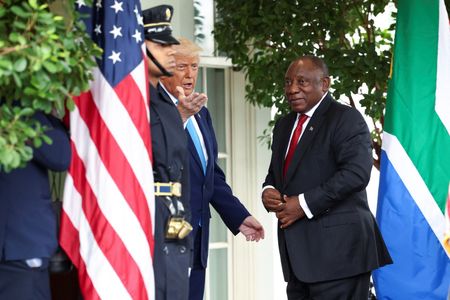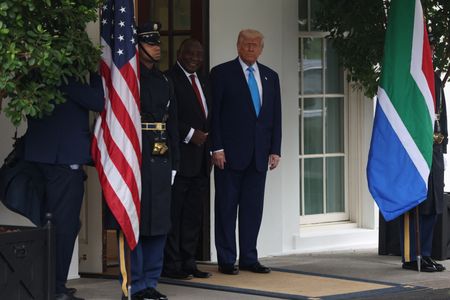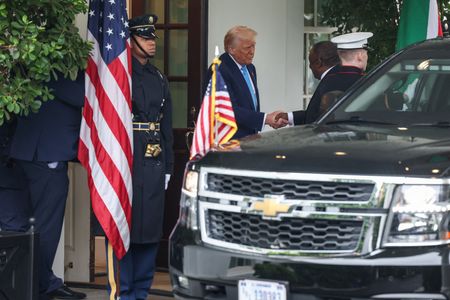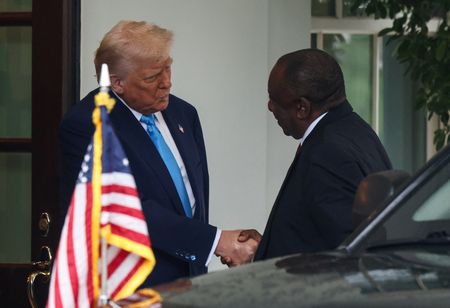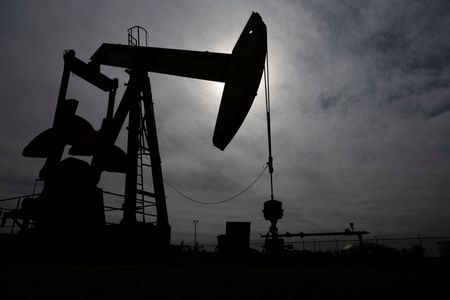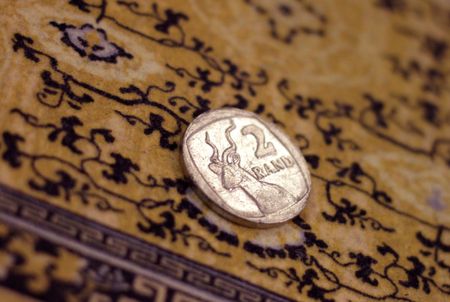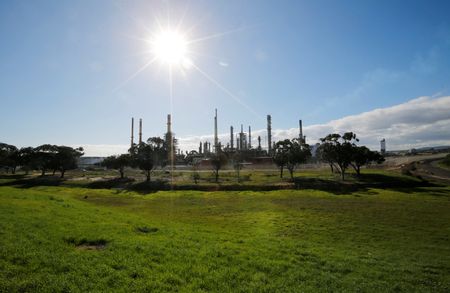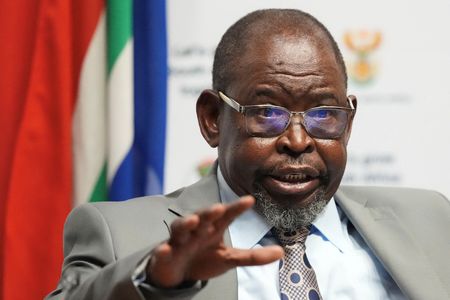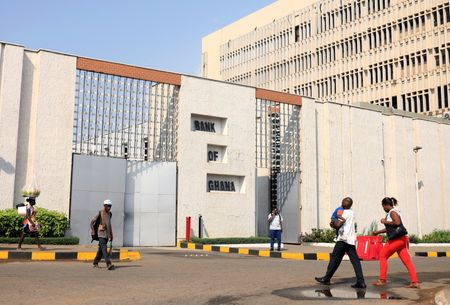By Nellie Peyton and Nandita Bose
JOHANNESBURG/WASHINGTON (Reuters) – South African President Cyril Ramaphosa heads to the White House on Wednesday on a perilous mission to persuade a hostile Donald Trump to make deals with his country rather than scold and punish it as he has done since the start of his second term.
Attacking South Africa’s land reform law aimed at redressing the injustices of apartheid and its genocide court case against Israel, Trump has cancelled aid to the country, expelled its ambassador and offered refuge to white minority Afrikaners based on racial discrimination claims Pretoria says are unfounded.
“Whether we like it or not, we are joined at the hip and we need to be talking to them,” Ramaphosa said on South African state television before flying to Washington to meet President Trump.
The stakes are high for South Africa. The United States is its second-biggest trading partner after China, and the aid cut has already resulted in a drop in testing for HIV patients.
Ramaphosa goes into his meetings with Trump, scheduled to start at 1530 GMT, bearing offers of trade deals and investment opportunities, and accompanied by ministers, luxury goods tycoon Johann Rupert and champion golfers Ernie Els and Retief Goosen.
On Trump’s side will be Vice President JD Vance, South African-born billionaire Elon Musk — who has accused Ramaphosa of pursuing anti-white policies, which he denies — and senior figures from the U.S. government.
Rashaad Tayob, a portfolio manager and macro strategist at Foord Asset Management, said markets were nervous about the talks given the clash between Trump and Ukraine’s Volodymyr Zelenskiy on February 28.
“One hopes that the inclusion of business leaders like Johann Rupert and golfers Ernie Els and Retief Goosen can serve to create a friendly environment and encourage Trump to tone down the aggressive anti-South Africa rhetoric,” he said.
Ramaphosa’s spokesperson told South African outlet News24 that “Zelenskiy-style treatment” was not expected.
GOLF CONNECTIONS
South African billionaire Rupert, founder of the Richemont luxury goods group that owns brands like Cartier and an important investor in his home country, helped bring about Ramaphosa’s meeting with Trump, South African media reported.
Els, a former world number one golfer and four-times major champion, also played a part, according to the reports.
Both men have played golf with Trump. Neither responded to requests for comment.
Ramaphosa will offer Trump a broad trade deal, as well as specific deals such as duty-free access for Musk’s Tesla electric vehicles in exchange for the firm building charging stations, and potential licensing for Musk’s Starlink company.
Agriculture Minister John Steenhuisen, who is in Ramaphosa’s delegation, said he was focused on securing and expanding South African farmers’ duty-free access to the U.S. market under the African Growth and Opportunity Act.
AGOA is at risk from Trump’s tariff regime, which is currently suspended but would hit South Africa with a 30% duty if enacted.
For his part, Trump is likely to demand that U.S. companies are exempted from “racial requirements”, a White House official said.
South Africa has laws to compel businesses to hire and promote Black South Africans, including a requirement for large companies in some sectors, such as mining and telecoms, to have a 30% equity stake held by disadvantaged groups.
Ramaphosa is unlikely to agree to weaken such rules, which are core to his government’s aspiration to restore racial justice after centuries of colonialism and apartheid.
APARTHEID LEGACY
Trump has accused South Africa of seizing land from white farmers and of fuelling disproportionate violence against white landowners with “hateful rhetoric and government actions”.
Pretoria says these claims are inaccurate and “fail to recognise South Africa’s profound and painful history”.
Crime statistics show no evidence that white people are disproportionately targeted. A land reform law allows judicial challenges to any expropriation orders, which can only be issued in the public interest. No expropriation has taken place.
White people, who make up about 7% of South Africa’s population, are still richer than the Black majority by every economic measure and still own three quarters of the country’s freehold farmland.
Ramaphosa is an experienced negotiator, having headed the African National Congress’s team during the 1990s talks that led to apartheid’s peaceful end. He also built a successful investment vehicle before becoming president in 2018.
(Additional reporting by Siyanda Mthethwa, Tim Cocks and Colleen Goko-Petzer in Johannesburg and Daphne Psaledakis in Washington; Writing by Estelle Shirbon; Editing by Sharon Singleton and Ed Osmond)

